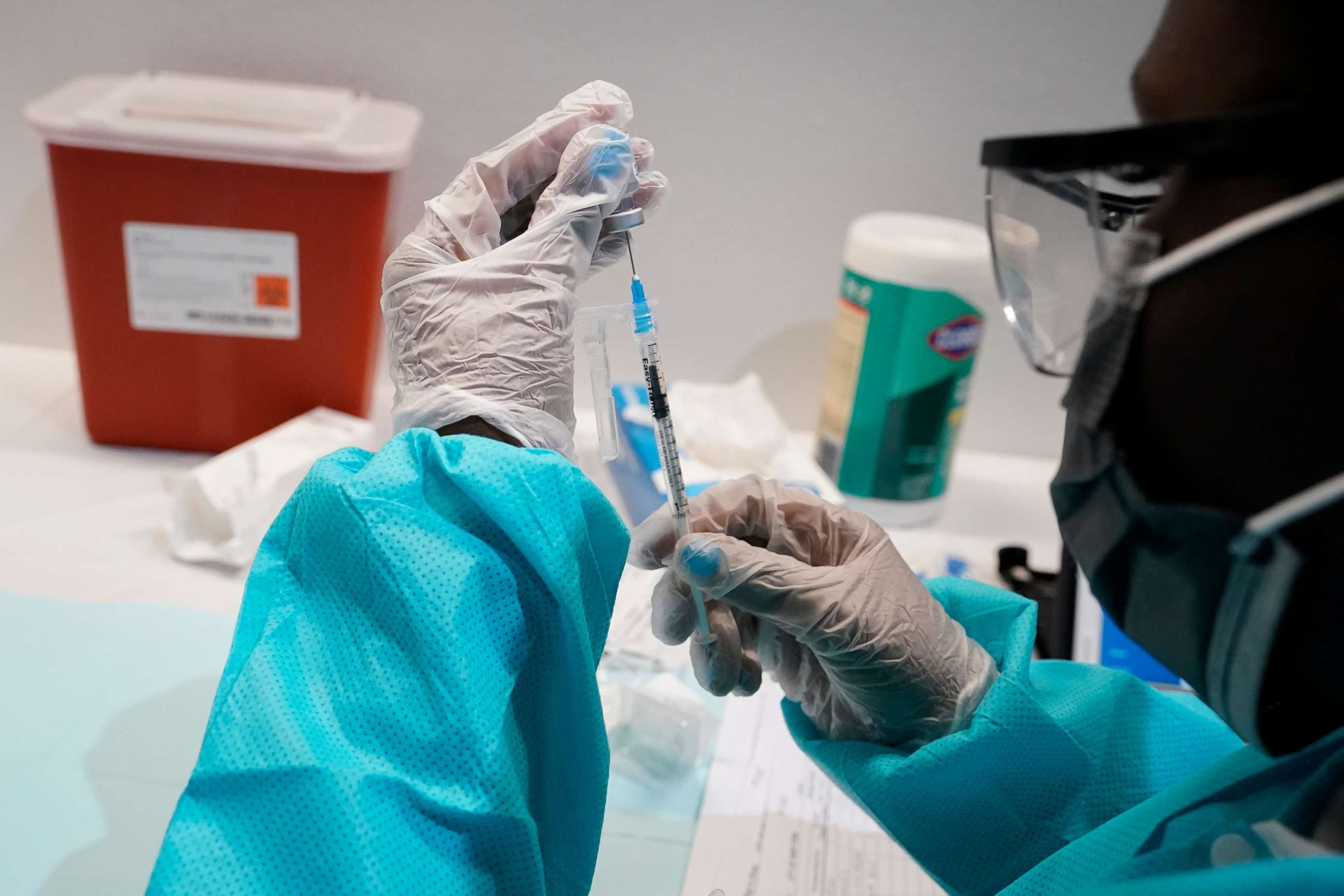Pfizer and Moderna to expand size of vaccine studies in 5- to 11-year-olds
As of July 22, more than 4 million children have tested positive for COVID-19.
Pfizer and Moderna are expanding the size of their COVID-19 vaccine studies in children ages 5 to 11, according to a new report.
The decision, which came after a push from the Food and Drug Administration, according to The New York Times, is intended to detect rare side effects in young people under the age of 30, such as myocarditis (inflammation of the heart muscle) and pericarditis (inflammation of the outer lining of the heart). The original size of the studies was too small to detect those rare side effects.
Pfizer declined to comment on The Times' report to ABC News and pointed to a vaccine timeline the pharmaceutical company had previously released. Testing on 5- to 11-year-olds began in early June, Pfizer said, and on kids younger than 5 on June 21. The company anticipates having initial Phase 2 and 3 results for 5- to 11-year-olds in September.

Moderna told ABC News in a statement: "It is our intent to expand the trial and we are actively discussing a proposal with the FDA."
It's unclear what effect these changes might have on the timeline for emergency use authorization for COVID-19 vaccines in children. "The objective is to enroll a larger safety database which increases the likelihood of detecting rarer events," according to Moderna. "Timelines are regularly reevaluated based on agency discussions and requests."
Moderna said it expects to seek emergency use authorization by the end of 2021 or in early 2022.
The FDA decline to comment on discussions with Pfizer and Moderna, but confirmed the agency's involvement in deciding how many participants are needed for safe clinical trials.
"While we cannot comment on individual interactions with sponsors, we do generally work with sponsors to ensure the number of participants in clinical trials are of adequate size to detect safety signals," the agency told ABC News in a statement.
In a statement last week, the FDA said: "Some of the advisory committee members have said they'd like to see a longer median follow up time after vaccination – more than the 2 months used to support FDA’s emergency use authorizations for older age groups – in the trials in the younger ages, which is something that the agency intends to take into consideration, though it is not bound by the recommendations of advisory committees or statements from advisory committee members during the course of scientific discussions."
As of July 22, more than 4 million children have tested positive for COVID-19 and 346 have died, according to the American Academy of Pediatrics.
ABC News' Eric Strauss and Cheyenne Haslett contributed to this report.




